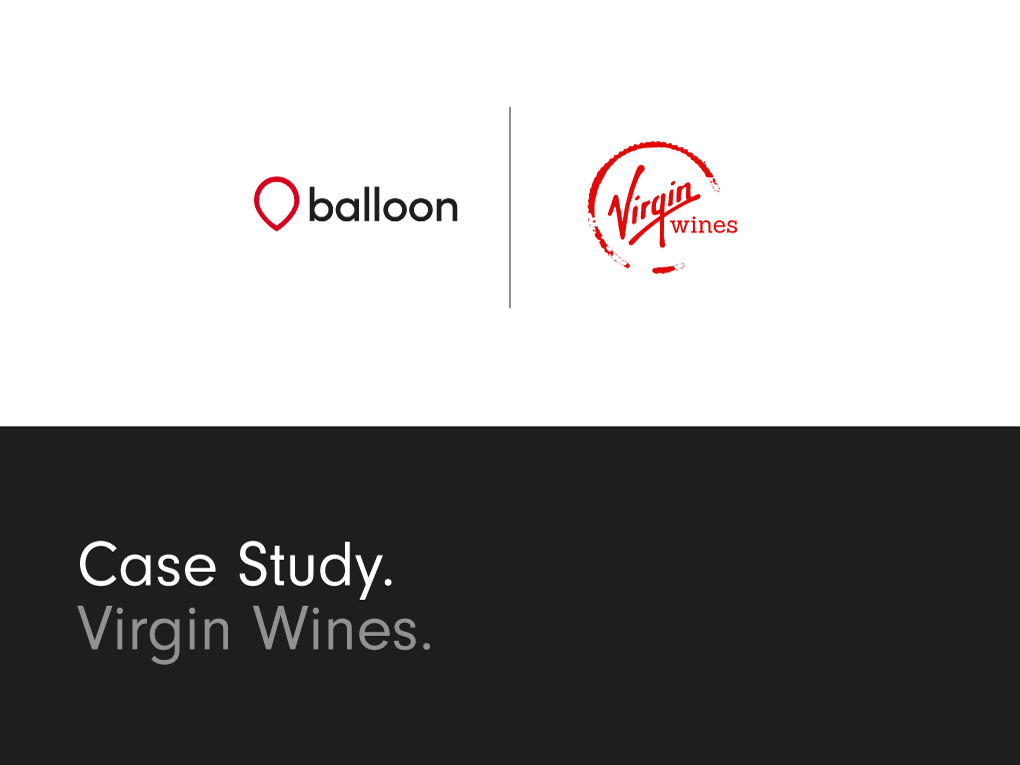Virgin Wines elevates efficiency and cuts costs with Körber WMS.

Since its foundation in 2000, Virgin Wines has grown to become one of the leading direct-to-consumer wine retailers in the UK.
It now turns over more than £59m and stocks between 4,000 and 7,000 pallets of wine across three facilities. It has a 49,000 square feet warehouse in Preston, a 46,000 square feet site in Bolton and a third-party storage location in Liverpool offering an additional 2,000 pallets of space for use as and when required.

Paper-based manual systems were preventing growth.
To manage its warehousing, Virgin Wines was running a legacy system that was effectively only a cataloguing application. This couldn’t manage multiple sites and was only updated twice a day. This left the company without live visibility into stock levels and lacking any effective end-to-end management of its stock.
Without up-to-date stock levels and sales information, the company’s stock and buying department found it more challenging to make informed decisions about potential purchases. Instead, short term stock levels had to be estimated and buying decisions were being based on outdated spreadsheet data.
There were a number of manual processes in the warehouse and a heavy reliance on paper-based manual systems that were inefficient and hindering the company’s growth. Reporting was lacking too, with KPIs recorded manually on spreadsheets and staff self-reporting on their performance.
As the company grew, the IT system and manual processes became more pressured. Growth accelerated even more during the pandemic and at peak times, such as Christmas, Virgin Wines was processing over 8,000 orders a day. Without robust warehouse management, the company would have found it more challenging to grow and expand its operations further. “We had reached the point where we needed to invest in our automation and processes,” says Jez Kirk-Smith, Head of Warehousing and Distribution for Virgin Wines.
In addition, there was no provision in any of the Virgin Wines systems for some of the key functionality required of a distributor in the food and drinks industry. For example, the company was unable to efficiently track expiry dates, which is crucial for its beer products as their finite shelf life limits the consumption window during which quality and taste are optimal. Additionally, Virgin Wines’ old system lacked the ability to track custom attributes, such as wine vintages. A customer expecting to repurchase a particular vintage might therefore end up disappointed to receive a different vintage for a subsequent order.
The old system was also unable to automatically handle payments for items subject to duties.
Jez says, “In essence, our goal was to implement a system that would dramatically streamline and automate our entire end-to-end order management processes. We wanted to ensure real-time stock accuracy, enhance efficiency and effortlessly scale our operation.”
Uncorking growth potential: the shift from manual to modern.
Virgin Wines engaged a specialist consultancy for its RFP process, which narrowed down eight potential companies to two.
Initially Virgin Wines opted for a different provider, but soon found the chosen software lacking. It didn’t have some specific out-of-the-box capabilities and would require significant custom development and a costly carrier management platform, which made the project economically unfeasible.
So, Virgin Wines revisited Balloon’s proposal and discovered through workshops that Körber WMS was superior in many ways. Jez says: “Körber WMS was a much better platform. It was more functional; it was simpler; and it was more flexible.”
So, Balloon was chosen to implement Körber WMS and to customise it so that it would meet the company’s specific capabilities pertinent to the food and drink industry. This included some heavy customisation to track wine vintages, plus some attribute management changes that provided effective expiry date management for the company’s beer ranges.
Using the capabilities inherent in Körber WMS, Balloon was able to generate the points in time when duty on products needed to be paid. Plus, Balloon staff used the system’s development toolkit to create an automated process for tracking duty payments, ensuring visibility into which products have had duty paid and which are due.
Using Springboard Ship, Balloon integrated the shipping functionalities. Developers also created an API to integrate all the systems with Mantiki, the ecommerce platform used by Virgin Wines. The final bespoke integration enabled CSV files containing purchase order data to be imported into the Körber WMS via electronic data interchange (EDI).
A toast to enhanced warehouse efficiency.
Today, the new Körber WMS and integrations are live and running smoothly and have already significantly enhanced the efficiency of Virgin Wines’ warehousing operations. With accurate stock levels, streamlined order processing and optimised use of space, the company has maintained strong service delivery levels while reducing its stock holding and significantly cutting its costs.
Jay Wright, Chief Executive Officer at Virgin Wines, commented that the company had been able to reduce “inventory levels by 24% YOY,” a reduction in stock holding of some £2.6 million.
Visibility into inventory and processes has made warehouse management easier. Jez confirms, “Not only do we have visibility that we didn’t have before, but it all happens with very little to worry about – the system runs itself.”
The WMS has greatly improved stock accuracy. Virgin Wines can now easily track its more than 5,000 stock items across all its warehouse locations. Orders are accurate too, without needing to be manually checked. Previously three staff on each of the three shifts were needed to manually check picked cases. But the accuracy of the WMS means that the company can redirect these employees towards other activities.
Stock accuracy has led to a reduction in the number of customers returning orders or cancelling subscriptions. The company states that there has been a “12% increase in YOY sales achieved in the first quarter of the financial year, as conversion and cancellation rates continue to improve.”
Jez has been impressed by the Körber WMS analytics. He says: “The out-of-the-box reporting within Körber is a dramatic improvement for us. We can automatically measure picking accuracy, stock turnover and other KPIs for warehouse efficiency and optimisation.”
He adds: “We were manually counting orders before and relying on staff to record their own performance. But now we get a genuine view of staff KPIs – costs per case, cases per hour, cases per picker, and so on.”
Accurate stock reporting has been a contributing factor to improved forecasting, too. Jez says, “It is far easier for our stock and planning department to make accurate purchases now that we have reports that show a precise and real-time stock situation.”
The run-up to Christmas accounts for a significant proportion of Virgin Wines’ business. This has previously been a somewhat chaotic time in the warehouse, with large numbers of temporary workers needing to be recruited and trained.
Jez reports that, thanks to the new WMS, the most recent Christmas period has been the company’s smoothest so far. He says: “Balloon developed a custom picking process for us that is easy to use and quick to train new staff on. So, this has helped us fulfil a high volume of orders with fewer people during our peak periods.” In fact, last Christmas, the company was able to recruit just half the number of temporary staff than it usually would.
The food and drink customisations and implementations that Balloon added have also bolstered the company’s operational capabilities. By addressing industry-specific requirements, such as the management of wine vintages and beer expiry dates, as well as the tracking of duty payments, the new WMS ensures Virgin Wines can uphold the highest standards of product quality and compliance.
What’s next for Virgin Wines?
The new WMS is helping to future proof Virgin Wines’ growth plans. Jez says: “We can still do more. Over the next few months, the objective is to optimise warehouse processes by reevaluating them to find further improvements. With Körber WMS, Balloon can keep customising and improving the system to match any revised processes and to streamline others.”
The lease on Virgin Wines’ current warehouse facility expires in 2026. So, the company is contemplating a move that would see it consolidate its operations into a single warehouse. Currently, items are duplicated across the two warehouses, which complicates inventory management and results in unnecessary overheads and an occasional need to transport stock between warehouses. Transitioning to a single, more modern facility could enhance operational efficiency, cut costs and improve overall logistics management.
Finally, Virgin Wines is also exploring the integration of robotics to further automate its operations. As the company considers transitioning to a new warehouse, implementing robotics could be a strategic move that would maximise efficiency and productivity. Virgin Wines can ensure that the design and infrastructure of a new warehouse fully supports the adoption of autonomous mobile robot (AMR) technology. Using AMR cobots – collaborative robots – would further streamline processes and enhance the existing human labour, reducing costs further and speeding up order fulfilment.
Jez concludes by saying that the support from Balloon will be paramount to Virgin Wines’ future warehousing plans. He says, “Balloon provides us with excellent support and consultancy. They implement our requested changes very quickly and we get a rapid response to any issues. It’s a really good partnership.”